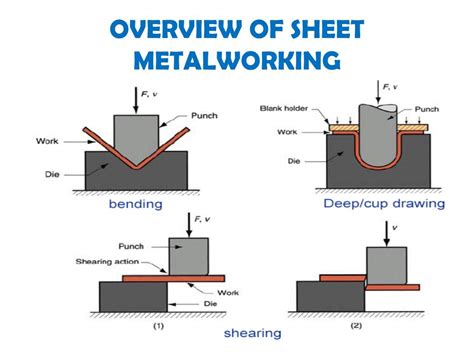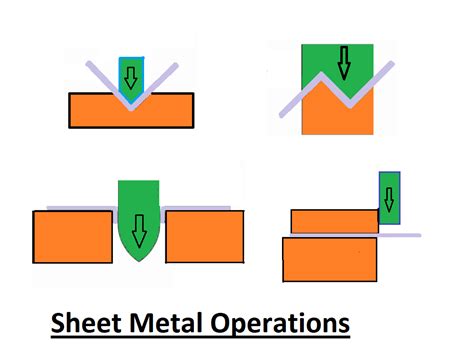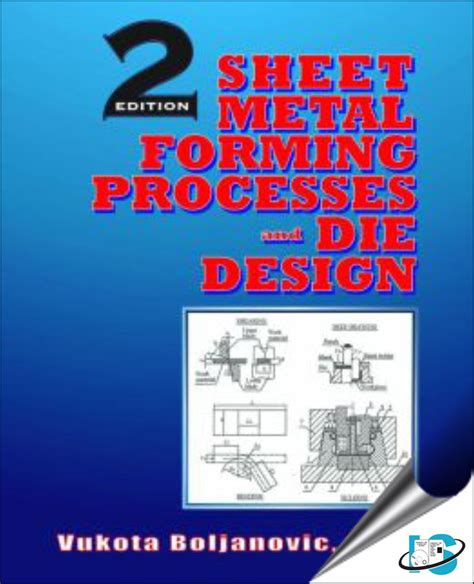sheet metal forming methods One fundamental technique is cutting, where the sheet is shaped by methods such as laser cutting, plasma cutting, or waterjet cutting. These methods (which are discussed in the more general topic of separating processes) enable the . $239.99
0 · sheet metal processes pdf
1 · sheet metal operations with diagrams
2 · sheet metal forming process pdf
3 · forming stainless steel sheet metal
4 · forming sheet metal by hand
5 · forming aluminum sheet by hand
6 · custom tooling for metal forming
7 · custom sheet metal forming
Altelix Vented Enclosures are designed to help expel heat from within the enclosure. They are ideal for installations in high temperature environments or for use with equipment that generates high heat during operation. To refine your .
Sheet metal forming is an effective means of producing sheet metal parts in complex three-dimensional shapes with a minimum of material. This conventional process involves a set of . Also known as sheet metal fabrication, sheet metal forming uses metal sheets to make various products and components. The metal sheets are formed and cut into the necessary shape and size via many different .
Sheet metalworking, also known as Sheet metal forming and sheet metal fabrication, is a manufacturing process of cutting and forming relatively thin metal sheets, strips, and coils to create desired shape sheet .One fundamental technique is cutting, where the sheet is shaped by methods such as laser cutting, plasma cutting, or waterjet cutting. These methods (which are discussed in the more general topic of separating processes) enable the .
In this comprehensive guide, we will explore different types of sheet metal forming processes, materials used, design considerations, tooling and equipment, process steps, quality control, troubleshooting, . 1. The different types of sheet metal forming processes such as bending, stretching, and deep drawing. 2. The materials used in sheet metal forming, including commonly used metals, alloys, and composites. 3. The . Sheet metal forming leverages the malleability of metals, enabling flat metal sheets to undergo controlled plastic deformation and be manipulated into 3D shapes without tearing or compromising the material’s integrity. Basic Forming Techniques. Bending, stretching, and deep drawing are three commonly used methods of forming sheet metal. Let’s explore this further. Bending, which is sometimes referred to as “press braking,” involves .
In this paper, the literature available on the effect of process parameters on the final product of a sheet metal forming process including drawing, bending and to some extent, .
Researchers are investigating numerical analysis methods to address various problems associated with the sheet metal forming process. The finite element method (FEM) and finite difference method (FDM) are two prominent techniques employed for the numerical investigation of the procedure involved in shaping sheet metal [ 3 ].
Incremental sheet metal forming (ISMF) is a viable method for fabricating complicated three-dimensional structures from sheet metal. It is characterized by localized deformation and is effective .sheet metal forming methods E Hagan and J Jeswiet Department of Mechanical Engineering, Queen’s University, Canada Abstract: The use of computers in manufacturing has enabled the development of .The FluidForming sheet metal forming process accommodates integrated logos, undercuts, organic forms, deep drawn parts, and even components with curves that would be likely to wrinkle or tear with traditional metal forming methods. FluidForming sheet metal forming is designed for low- to medium-volume parts production.Sheet metal forming is a manufacturing process that involves shaping thin metal sheets into desired geometries through techniques like bending, stretching, and deep drawing. This versatile process is widely used in industries such as automotive, aerospace, and construction, due to its efficiency in producing lightweight and durable components.. Familiarizing yourself with sheet .
Working Of Deep Drawing Sheet Metal Processes Stretch Forming Process -Advantages and Disadvantages Bending and Forming | Interview Question and Answers Introduction To Mechanical Presses Used For Sheet Metal Metal Sheet Spinning process | Sheetmetal Forming Introduction to manufacturing processes and their classification. Share. Save. Share. The FEM and experimental methods were used in order to demonstrate how two-dimensional in-plane simulation can help interpret and develop such tests, as well as to understand the nature of material behavior and governing mechanics. A successful sheet-metal forming process can convert an initially flat sheet into a useful part of the desired shape.Bulk deformation and sheet metal forming are two common methods used in metalworking processes. Bulk deformation involves the shaping of a metal workpiece by applying forces that cause plastic deformation, such as forging or extrusion. This method is typically used for creating complex shapes or components with high strength and durability. Simulation method has become an increasing important problem to establish the trustworthiness of models in the finite element simulations. Finite element models in sheet metal forming, which .
Millipede forming, a novel sheet metal forming method, has been proposed and developed recently to overcome fundamental limitations in conventional roll forming. For this new method, there are two main aspects: use of an optimal transitional surface and implementation of a method to feed the strip through the transition surface. Achieving the .requirement of sheet metal forming industries. Incremental sheet metal forming (ISMF) has created significant scientific attention. The process is agile, highly flexible and it able to handle the market requirement. The drawbacks for the sheet metal . #2. Sheet metal forming. Sheet metal forming involves the application of tensile and shears forces to fabricate sheets, plates, and strips to a desired possible shape using a set of tools. The punch and die are used as tools in the fabrication process.

Sheet metal forming is a flexible metal deformation process to shape thin-level metal sheets into desired shapes. The process is relatively cost-effective and ideal for large parts volume. It utilizes multiple approaches such as bending, hydroforming, stretching, punching, and deep drawing to create sophisticated parts with high precision. Sheet metal forming is an essential process used in industries such as automobile construction and manufacturing. It involves shaping flat sheets of metal into three-dimensional objects. This guide explores the beginning to end application process and covers forming techniques, equipment, challenges, and materials involved. . The application of aluminum alloys in automotive and aerospace industries has been growing significantly in the last 20 years. Due to their high specific strength, aluminum became a strong replacement for steel particularly at automotive manufacturing. However, to deform a complex panel part from aluminum is quite challenging specifically at cold forming .
Forming is the most widely used sheet metal operation used for manufacturing various sheet metal components across the industry.. Sheet Metal Forming . Image courtesy: Wiki Based upon the manufactured components . Due to wide range of applications, the process of forming the sheet metal into various shapes leads to classification of the forming processes based on specific operation. This classification involves bending, blanking, stretch forming and deep drawing. Each process has some parameters that define the quality of the work achieved.
sheet metal processes pdf
sheet metal operations with diagrams
Sheet metal processing is a method that manipulates flat sheets of metal into desired shapes and structures. Understanding the sheet metal forming process gives us insights into the world of manufacturing, revealing the ingenious intersection of creativity, precision, and technology.
Looking beyond the field of metal forming, there are a number of technologies and methods capable of tracking human motions, which can be used to subsequently capture tool/sheet trajectories. This is currently a rapidly expanding field, given a recent explosion in computer vision research.Sheet metal stamping is a cold-forming process using presses and dies to shape materials. It works with various metals, including stainless steel, carbon steel, aluminum, brass, and copper. Stamping combines cutting and forming techniques like bending, punching, embossing, and flanging to produce complex components quickly.

sheet metal forming process pdf
Sheet metal often contains sharp edges with “burrs” after it’s initially produced. Curling is a forming process that involves de-burring sheet metal to produce smooth edges. #2) Bending. Another common sheet metal forming process is bending. Companies typically perform bending on sheet metal using either a brake press or similar machine .
forming stainless steel sheet metal
Theories, Methods and Numerical Technology of Sheet Metal Cold and Hot Forming: Analysis, Simulation and Engineering Applications (Springer Series in Advanced Manufacturing) [Hu, Ping, Ma, Ning, Liu, Li-zhong, Zhu, Yi-guo] on Amazon.com. *FREE* shipping on qualifying offers. Theories, Methods and Numerical Technology of Sheet Metal Cold and . Significant non-uniform sheet metal deformation was also found, which may pose a problem in the process of designing forming tools and technology of plastic forming of Inconel 625 Ni-based alloy . Request PDF | Numerical Modeling of Incremental Sheet Metal Forming Process for Generating Complex Shapes on Ti6Al4V | This article focuses on the simulation of complex-shaped parts made from a . Sheet metal forming is a process that involves cutting, bending, and shaping metal. All metal alloys that possess ductility are suitable for this metalworking applications such as stainless steel, aluminum, copper, and brass. The plasticity of these metals makes it possible to deform them without losing the structural integrity of the metal.
A comparison of traditional and modern forming methods is presented here in an attempt to illustrate the evolution of different incremental sheet metal forming techniques. Emphasis is placed on conventional spinning, shear forming and modern computer-controlled forming methods that are currently being studied.
forming sheet metal by hand
The forming limit analysis proceeded during the sheet metal forming process at various elevated temperature. The fracture’s forming load, stroke, and position were determined for different .

Maintain your type 4 rating with a NEMA 4 ventilation kit. These NEMA 4 vent kits ensure proper ventilation for an electrical enclosure and allow for needed airflow for critical electronic components housed in your NEMA enclosure.
sheet metal forming methods|custom tooling for metal forming